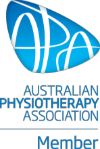What is the best treatment for a frozen shoulder?
A frozen shoulder follows a relatively predictable course that involves three stages and usually resolves by 18 months.
Good management of a frozen shoulder starts with an accurate clinical diagnosis that may include X-ray or other investigations to rule out other shoulder conditions. This diagnosis is important as the treatment options for a true frozen shoulder are very different for other stiff and painful shoulder conditions that may present in a similar manner to a frozen shoulder. For example, a localized capsulitis (tightening of only part of the shoulder joint capsule) that occurs after trauma or surgery, will respond well to physiotherapy mobilization and stretching where as a true frozen shoulder (contracture of whole capsule) will not respond well to this treatment in the early stages.
In the early painful stage of a frozen shoulder, best management involves avoiding movements and activities that increase shoulder pain while gently trying to maintain joint movement. Aggressive stretching and mobilization will likely make the symptoms worse and should be avoided. Anti-inflammatory medication and cortisone joint injection may be useful in cases where person is experiencing debilitating pain.
As the frozen shoulder begins to 'thaw' and pain settles, physiotherapy and range of movement exercises can help to restore shoulder function. Due to the prolonged timescale of a frozen shoulder, physiotherapy will also work to strengthen neck and opposite shoulder to try and prevent secondary overload injuries in these areas. Further injection therapy such as a hydrodilatation or arthroscopic surgery (capsulotomy) are effective options in some cases when shoulder movement remains severely restricted.
More shoulder questions
How may physiotherapy help an injured shoulder?
What causes a frozen shoulder?
How do you treat a frozen shoulder?
What does the Rotator Cuff do?
What can physiotherapy do for a Rotator Cuff tear?
Why is the scapula (shoulder blade) important?
What is a winging scapula?
What is sub-acromial impingement?
How can physiotherapy treatment help sub-acromial impingement symptoms?
Do I need to stop training in the gym if I have shoulder pain?
Are there certain gym exercises that are bad for shoulders?
Do I need to do exercises for my sore shoulder?

